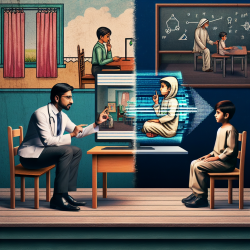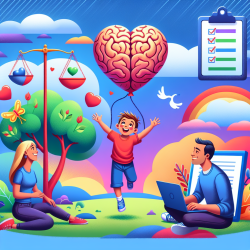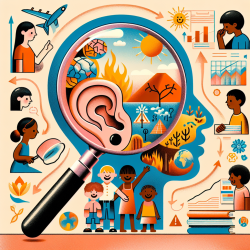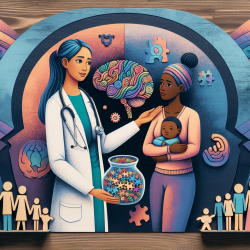Metachromatic leukodystrophy (MLD) is a rare, progressive genetic disorder that significantly impacts the lives of affected children and their families. Recent qualitative research from Japan has provided invaluable insights into the multifaceted challenges faced by these families, emphasizing the need for comprehensive support systems. As practitioners dedicated to creating great outcomes for children, it is crucial to leverage these findings to improve our therapeutic approaches and advocacy efforts.
Understanding the Research Findings
The study titled "Impact on physical, social, and family functioning of patients with metachromatic leukodystrophy and their family members in Japan: A qualitative study" delves into the experiences of families dealing with MLD. The research identifies three primary themes:
- Challenges of life for the patients
- Challenges in the healthcare system
- Challenges of family function
Challenges of Life for the Patients
Children with MLD experience a rapid decline in physical and cognitive functions. Parents in the study reported the progressive loss of abilities such as walking, talking, and eating. This decline necessitates increasing levels of care and support, including:
- Muscle tone management
- Orthotic support
- Communication aids
Practitioners can enhance their support by integrating adaptive communication methods and physical aids tailored to the child’s evolving needs.
Challenges in the Healthcare System
The research highlights significant gaps in the healthcare system, including delays in diagnosis and limited access to specialized care. Parents often face the burden of navigating these systems while seeking the best possible care for their children. Key areas for improvement include:
- Early diagnosis and intervention
- Access to clinical trials and advanced therapies
- Better coordination between healthcare providers
Advocating for policy changes and increased funding for rare disease research can help address these systemic issues.
Challenges of Family Function
The impact of MLD extends beyond the affected child to the entire family. Caregivers experience high levels of stress and must adapt to new roles and responsibilities. The study emphasizes the need for:
- Respite care and mental health support for caregivers
- Flexible work arrangements
- Community and peer support networks
Practitioners can play a vital role by connecting families with these resources and providing holistic support that addresses the emotional and social aspects of caregiving.
Implementing Research Insights
By integrating the findings from this study into practice, practitioners can significantly improve the quality of life for children with MLD and their families. Here are some actionable steps:
- Use adaptive communication tools to support children’s interactions.
- Advocate for early screening and diagnosis to enable timely interventions.
- Coordinate with multidisciplinary teams to provide comprehensive care plans.
- Offer support groups and mental health resources for caregivers.
Encouraging Further Research
While this study provides a robust foundation, there is a need for ongoing research to explore new therapies and support mechanisms. Practitioners are encouraged to participate in or initiate research projects that can contribute to the growing body of knowledge on MLD and similar conditions.To read the original research paper, please follow this link:
Impact on physical, social, and family functioning of patients with metachromatic leukodystrophy and their family members in Japan: A qualitative study.










